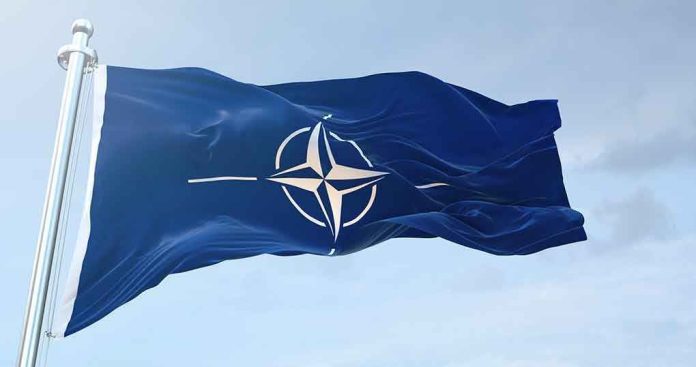
Georgia’s NATO military drills are in full swing, and you won’t believe the political circus playing out behind the scenes as the country hosts Western troops while cozying up to Moscow.
At a Glance
- Georgia’s Agile Spirit 2025 military exercise launched amid accusations of democratic backsliding and closer ties to Russia
- Over 2,000 troops from more than a dozen NATO and partner nations are drilling on Georgian soil through August 8
- Western leaders worry Georgia’s government is using drills for show while undermining its own NATO aspirations
- Russia, as usual, is howling about NATO “provocations” in its backyard, threatening to escalate tensions in the region
Georgia’s NATO Drills: Pumping Up the West While Flirting with Russia
Georgia has thrown open its doors to NATO’s Agile Spirit 2025 drills, boasting the presence of U.S., German, Turkish, and other allied troops in what’s being billed as a show of “commitment” to the West. Yet, in a move that would make even the most seasoned political contortionist blush, the very same Georgian government is drawing accusations of backsliding on democracy and inching closer to the Kremlin. The contradiction is staggering: massive multinational military games on one hand, and a government whose actions are setting off alarm bells in Brussels and Washington on the other.
Georgia on Friday hosted major multinational military exercises with NATO troops, despite its government facing growing accusations of drifting away from a pro-Western path and edging closer to Russia's orbit.https://t.co/DCqIr82otp
— Insider Paper (@TheInsiderPaper) July 25, 2025
This year’s Agile Spirit is no small affair. More than 2,000 soldiers—including over 800 U.S. service members—are running live-fire drills, command post exercises, and special operations across five major Georgian bases, with the opening act staged in Adana, Turkey. Washington’s brass, including top officials from U.S. Army Europe and Africa, are on the ground, hammering home America’s “unwavering commitment” to Black Sea security. NATO’s message is clear: they’re not backing down in the face of Russian bluster, and Georgia is, at least on paper, still in the Western fold.
Georgia’s Political Tightrope: Western Promises Versus Reality
The reality behind Georgia’s international photo ops is far less flattering. The ruling Georgian Dream Party stands accused by Western and local critics alike of eroding democratic norms, rigging elections, and dragging its feet—or worse, backpedaling—on promised reforms. Recent elections drew cries of fraud and sparked street protests, while the government’s actions have left NATO and EU officials questioning whether Georgia’s Western aspirations go beyond empty gestures and PR stunts. Despite a constitutional commitment to joining NATO, Georgia’s leadership appears increasingly eager to curry favor with Moscow, even as it plays host to Western troops. It’s a high-wire act that, if it goes wrong, could leave Georgia isolated from both East and West.
The Western response has been a mix of public support and private skepticism. U.S. and NATO leaders have praised the exercises while quietly warning that Georgia’s path to true Western integration is in jeopardy unless it reverses its democratic backsliding. The whole situation feels like watching someone wave the American flag with one hand and the Russian tricolor with the other—while expecting applause from both sides.
Russian Reactions: Rhetoric and Regional Risk
Russia, predictably, is throwing a fit. Kremlin spokesmen and state media are condemning the NATO presence as a provocation and vowing unspecified “countermeasures.” Moscow has long viewed any Western military activity in the Caucasus as a threat to its sphere of influence, especially after occupying a fifth of Georgia’s territory since 2008. The latest drills are fueling Russian paranoia, and analysts warn that Moscow could step up hybrid pressure—from disinformation campaigns to military posturing—against both Georgia and its Western partners. For Georgians, the presence of foreign troops may offer reassurance, but it also raises the temperature in a region that’s already a geopolitical powder keg.
The exercises may boost morale among Georgia’s pro-Western patriots, but they also deepen polarization at home. With Russian forces entrenched in Abkhazia and South Ossetia, and the government’s loyalties increasingly questioned, Georgia’s future as a frontline Western ally is anything but secure. The only thing that seems certain is more tension, more political posturing, and more risk for the ordinary Georgians caught in the middle.
Georgia’s Road Ahead: Real Alliance or Just a Show?
Agile Spirit 2025 is meant to signal Georgia’s steadfastness as a NATO partner. But the elephant in the room is whether these military theatrics hide a government that’s already made its choice to pivot eastward. Short-term, the drills let Georgia’s leaders claim they’re still “in the club.” Long-term, unless there’s a course correction on democracy and real reforms, Western patience is running out. The risk? Georgia wakes up to find itself abandoned by its Western friends and at the mercy of a predatory neighbor to the north.
The stakes couldn’t be higher. The drills may end in August, but the political fallout—and the question of where Georgia truly stands—will linger much longer. For now, the world watches as Georgia straddles the fault line between liberty and authoritarianism, hoping it doesn’t slip and fall into the abyss.
Sources:
Civil.ge: “Agile Spirit 2025 Multinational Military Exercise Kicks Off in Georgia”
TASS: “Agile Spirit 2025 Multinational Drills Launch in Georgia”
Euronews: “Georgia Hosts NATO Military Exercises Despite Perceived Pivot Towards Russia”
Kyiv Post: “Agile Spirit 2025 Drills Begin in Georgia Amid Tensions”





